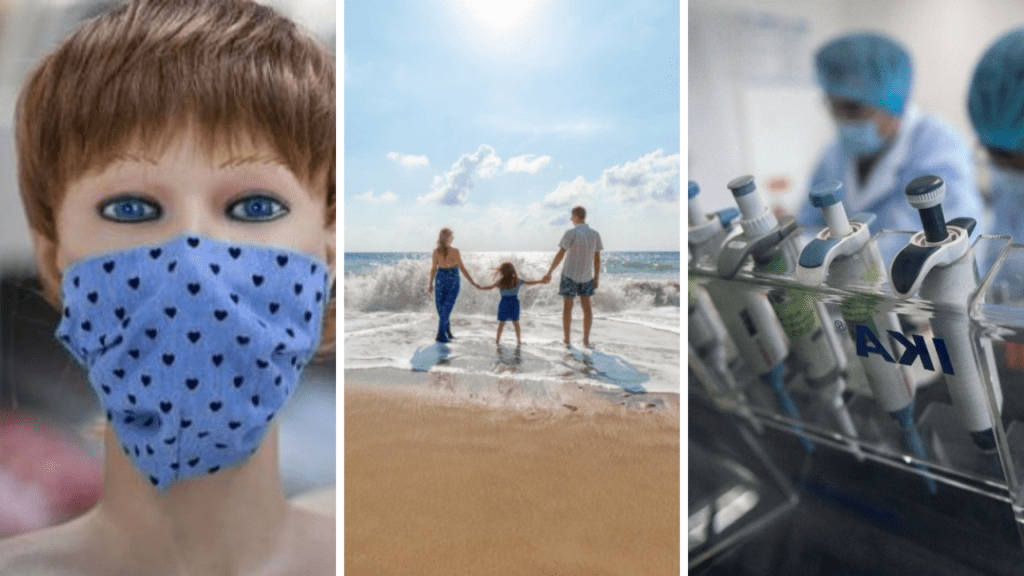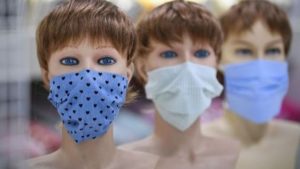Phase 4 officially kicks off this week, and life continues to ease towards a new normal in Belgium as the idea of heading to the beach for a summer holiday approaches.
From Wednesday, groups will grow, more places will open, and travel will resume. It's a cautious reopening, with the words of Belgian PM Wilmès still hanging over any excitement at what Wednesday could bring.
“If I protect myself, I protect you too,” she said during the press conference on Wednesday. “So please, think about your health, and that of others. The virus is still in the country.”
So, what else is new? Belgian can track coronavirus infections in their municipality, a guide in how infections impact your summer, and the latest on a potential vaccine.
With so much information, and so little time to catch up before it potentially changes again, here are some of the top stories from around the country to get you up to speed.
Belgium in Brief is a free daily roundup of the top stories to get you through your lunch break conversations. To receive it straight to your inbox every day, sign up below:
1. Belgians can now track coronavirus per municipality
Last week, Belgium’s national research institute Sciensano launched a new tool with which both authorities and citizens can track the number of new infections in their municipality.
As the institute has stopped holding press conferences to announce the latest figures for new infections, hospital admissions and deaths in Belgium, it launched a tool for citizens to keep track of the situation themselves.
The presence of the coronavirus is being measured at the municipal level, based on three indicators. Read about it here.
2. Belgium shortens mandatory quarantine after Covid-19 exposure
People who have had close contact with a Covid-19 patient can now request a second PCR, or diagnosis, test in order to shorten their mandatory 14-day quarantine, a federal health institute decided.
“This second test can be performed no sooner than nine days after the last risky contact. If the second PCR test is negative, the self-isolation can be terminated — no sooner, then, than ten days after exposure,” federal health institute Sciensano wrote. Read more.
3. MEP hit by defamation complaint over accusations of police brutality
Brussels prosecutors have issued a defamation complaint against a German MEP who accused them of police brutality while she photographed an arrest.
The Brussels public prosecutor’s office requested the North police zone to draw up a report on the incident and to issue a complaint for defamation as well as acting rebelliously and insulting police officers, according to Het Nieuwsblad.
“She insulted officers and tried to prevent the control of possible suspects of a serious violent case,” a police source told the outlet. Read More.
4. What Phase 4 means for your summer
As our social bubble keeps growing, swimming pools will reopen and events can take place with an audience again, here’s some clarity about what Belgium’s Phase 4 actually means.
The country will enter into its next phase out of lockdown from 1 July, and even though there are fewer and fewer rules, it remains incredibly important that people keep following them, according to Belgian Prime Minister Sophie Wilmès. Read More.
5. EU to bar Americans from entering Europe
US citizens will be prohibited from travelling to Europe when the EU opens its external borders on 1 July.
The list of countries allowed to enter the union was finalized in Brussels on Friday evening during a meeting between EU ambassadors.
The EU’s proposed list of countries of which citizens would be allowed to travel to Europe contains fourteen countries: Algeria, Australia, Canada, Georgia, Japan, Montenegro, Morocco, New Zealand, Rwanda, Serbia, South Korea, Thailand, Tunisia and Uruguay. Read more.
6. STIB launches contactless payment on public transport
Travellers on the Brussels public transport system will soon not need a metro ticket to ride, following the launch of contactless payment in the capital to serve more casual riders.
The system – which has been undergoing tests by operator STIB for months – will take advantage of new terminals which have appeared in stations and vehicles over the past months. “This new method of payment is easy and fast and has been developed for occasional travellers and tourists,” STIB commented. Read more.
7. Sanofi, GSK, AstraZeneca, Moderna: The race towards a covid-19 vaccine
Sanofi, one of the world’s main vaccine producers, is working on the development of two vaccines against Covid-19, expected to be produced in 2021.
The French company claims to be very well placed to produce a vaccine, which would be reliable and available in large quantities.
Another vaccine, developed by British GSK, uses so-called recombinant DNA technology, already used for an influenza vaccine. It is expected to undergo clinical trials in September and be available in the first half of 2021, a little earlier than what Sanofi initially announced. The group says it can produce up to a billion doses a year. Read More.
Jules Johnston
The Brussels Times



